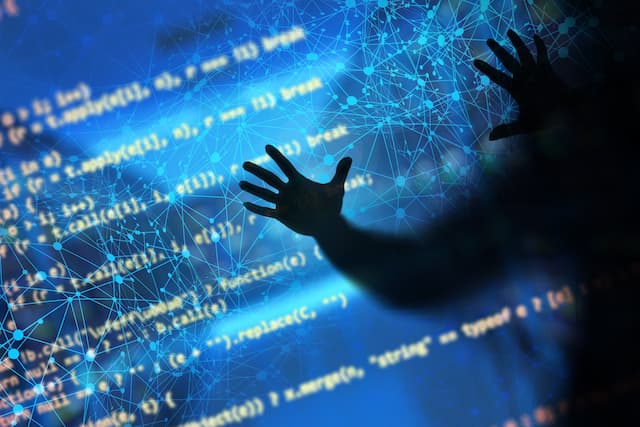
Blog Post
Software Development
The Dark Side of AI - Risks in Software Development
Published on Jul 05, 2024
by José Luis Vega
Developers have been empowered to integrate AI tools into their workflows since the Artificial Intelligence (AI)- generated code boom. AI development tools like ChatGPT and Copilot have become the go-to source for coding answers, replacing Stack Overflow.
AI tools streamline development workflows by automating routine coding tasks and providing real-time code suggestions. This automation frees up your time, allowing you to focus on higher-level design and problem-solving tasks.
We can see many benefits, such as improved efficiency and productivity, increased time to market, and cost savings. However, as we learn to leverage these new tools better, many risks start arising.
Is your development team actively learning about the potential risks associated with AI coding tools? Understanding these risks can catalyze your team's growth and learning.
Risks of AI in Software Development
AI models are usually trained on publicly available code, raising issues such as potential copyright infringement or ethical concerns.
Additionally, there's more to consider. AI language models can also replicate biases from their training data, leading to bad practices in the code they generate.
Not to mention existing code, where the model fabricates information entirely, often suggesting non-existent functions.
Code Quality Issues
One of the primary concerns is that generated codes sometimes align with organizational practices and established standards.
This can lead to variations in style, structure, and line of code, making the codebase challenging to maintain and scale. Generated code can need help with complex or detailed tasks, especially ones affecting different system parts.
Also, many machine learning models work like a "black box," meaning it's hard to understand how or why they make certain code decisions. This lack of transparency makes troubleshooting, debugging, and optimization more difficult, as you can't easily trace the logic behind the code.
Security Vulnerabilities
AI training exposes models to vast code databases containing exploitable patterns and known vulnerabilities.
Generated code can introduce potential security flaws by using weak or outdated cryptographic algorithms, including:
Outdated libraries
Old frameworks
Obsolete code snippets
Insecure error handling
Error leaks
Hardcoded credentials
Incorrect data structures
Improper configuration
Compliance and Intellectual Property (IP) Concerns
Compliance with IP rights and licenses is another area of concern. Training generative AI models on public and private code exposes them to code without transparent sources or ownership.
Training generative AI systems on public and private code exposes them to code without transparent sources or ownership.
When generating new code from these models, there is a risk of inadvertently infringing copyright or violating licenses. Many generative AI tools also reserve the right to train on the prompts users provide.
In organizations with little oversight of developers' use of AI, there is a risk that proprietary code, customer data, or other secrets may be publicly exposed.
This can result in significant compliance violations, especially in highly regulated industries.
Will AI Take Over Software Engineering?
The rise of AI coding tools like ChatGPT and Copilot has sparked concerns about AI replacing software engineers altogether. However, the current state of AI suggests a more collaborative future, not a takeover.
Here's why:
Focus shift: AI excels at automating repetitive tasks, freeing engineers for more strategic thinking, complex problem-solving, and system design.
Human expertise remains crucial: Understanding user needs, planning solutions, and ensuring code quality and security require human knowledge and judgment.
AI as a tool, not a replacement: AI can be a powerful tool in a developer's arsenal, but it lacks the creativity, critical thinking, and adaptability needed for independent software engineering.
AI will undoubtedly change the software development landscape, enhancing engineers' capabilities instead of replacing them entirely.
How Do We Counter These Risks?
Organizations should establish thorough testing and validation processes to reduce the new risks AI coding tools introduce. These include:
Rigorous Testing & Validation:
Thorough code reviews
Automated testing
Security analysis
Human Oversight & Expertise:
Essential for Quality, Security & Compliance
The future of software development is bright. It will be a collaborative environment where humans and AI work and write code together, each contributing unique strengths to deliver secure, efficient, high-quality software.
